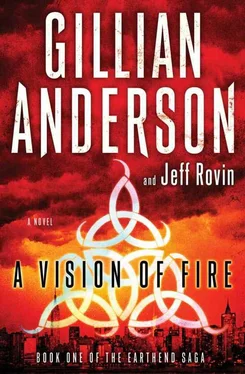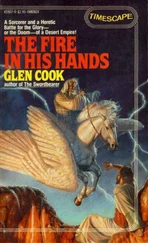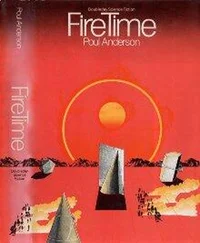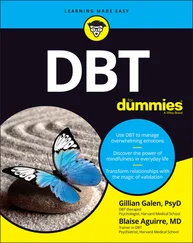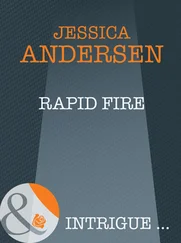The girl was silent. Caitlin remained patient.
“I am not sick,” Gaelle repeated. “But I want to be a good nurse. I want to help you help your other patient.”
Caitlin hadn’t realized she was holding her breath until she exhaled. “Thank you. I couldn’t ask for anything more. So you’ll see me then?”
“I will.”
Gaelle and Caitlin set a time and place for the following day. Then Caitlin called her parents on Long Island and her father agreed to come to the city to stay with Jacob. She jumped online to reserve a flight to Haiti leaving early the next morning with a return late that night. After booking transportation to and from the airports, she focused on the final necessity, a guide and translator. She did not consider calling Ben or even the ambassador to help, as she knew that most Haitians hated the UN. They believed that one of its camps had introduced cholera to the country for the first time in a century. Thousands had died; a lawsuit against the UN was crawling through the New York judicial system.
She called Sharon Tanaka at the World Health Organization instead. Sharon was a tough nut with budgets but an excellent connector. She agreed to find a good person to meet Caitlin the next morning at a hotel conveniently located in Port-au-Prince and escort her to Jacmel.
Logistics settled, Caitlin reached for the top shelf of her bedroom closet, where she kept a go-bag for emergencies. She banged the wall accidentally as she did so.
Jacob banged back—gently, reminding her to chill.
She knocked back, chilled. The sense of urgency wasn’t gone, but now at least it had a direction.
• • •
Waking from a dreamless sleep just after dawn—and a half hour before her alarm was to go off—Caitlin put her mind to rescheduling her appointments. Dr. Anita Carter was on call if any of her kids had an emergency. Caitlin sent Mrs. Pawar an e-mail with the video from Haiti attached, explaining why she was going. She added that if there was another episode and the cue failed, they should try to administer one of the sedatives during one of her more conversational phases, assuming she would progress through the cycle she had demonstrated. Caitlin would change her flight back if necessary.
Caitlin also took a minute to check the news online before Jacob woke. The headlines were in big, bold type, ugly and ominous. Indian and Pakistani troops were being massed along the Line of Control—a buffer between India’s Jammu and Kashmir and Pakistan’s Azad Jammu and Kashmir—as well as near the Zero Point, which lay between the Indian states of Gujarat and Rajasthan and Pakistan’s province of Sindh. The reporting was frank, the editorials pleading, the faces in the photographs set in every shade of fear, whether they were citizens, soldiers, or politicians.
A spark , Caitlin thought. That was all it would take to ignite those long, fierce borders. Not necessarily a bullet there but a wrong word here. She was sure the Pawars would insulate Maanik from the news as best they could, but there was no way of knowing how much of her father’s anxiety was being communicated subconsciously and whether that affected her condition. How could it not?
Jacob stalked behind her and put his arms around her. She turned and kissed his forehead.
“Morning, hon,” she signed.
“I am a zombie,” he replied with a mushy face.
“Then go make us oat brains.” She smiled. “Get it? Brains… bran.”
He acknowledged the joke with a grunt and shuffled to the kitchen to make breakfast.
Joseph Patrick O’Hara arrived shortly before seven. He was a big man with a pile of white hair and a chronic smile in his eyes. Jacob left the breakfast table to hug him around the waist while Caitlin kissed his cheek.
“Thanks, Pop,” she said. “It’s good to see you.”
“Always a pleasure,” he replied, rubbing Jacob’s hair.
That tended to be the length of their conversations whenever he drove in from Long Island to “sit”: she was always running late, he was always misjudging traffic, and they usually only spoke as she was racing into the hallway. Her father hugged her quickly as she headed to the waiting car service.
“I love you both!” she said at the door. “Jacob, you can stay up late but no video games, surfing the Web, or zombies after eight thirty. See you Tuesday.”
Caitlin was on her tablet for much of the four-hour flight. Most of that time was spent answering e-mails from patients and colleagues. She also went to the UN Youth Development website, which had first noted the YouTube video of Gaelle Anglade. There were no other reports of anything similar, but Caitlin couldn’t help thinking of the boy in Iran who had first exhibited logorrhea, then set himself on fire. There had been no mention of gestures with him but perhaps… perhaps she was being hasty. She wouldn’t even know this case in Haiti was related until she saw Gaelle face-to-face.
The airport in Port-au-Prince was a modern affair and the van to the hotel in Pétion-Ville, a wealthy district south of the city, was an air-conditioned, scented bubble. “Real” Haiti would begin when she left the district.
The hotel receptionist pointed her to the roofed section of the courtyard near the pool. That was where people met guests, she said.
The wicker chairs and tables were in deep shadow compared to the brilliant sunlight outside. Caitlin stood looking around and saw a white man approaching who seemed vaguely familiar. He was wearing scrubs and had just been sitting with two Haitians who were dressed more for the Port-au-Prince markets than a Pétion-Ville hotel. The duo remained sitting at a table out of the sun as he came forward.
“I’m Aaron Basher,” the white man said, offering his hand. Caitlin suddenly recognized him as Gaelle’s doctor in the video.
“Caitlin O’Hara,” she replied.
“Sharon Tanaka asked—actually, she insisted—that I meet you and take you to Jacmel.”
“That sounds like her usual MO.” Caitlin smiled as she followed him to the table. She did not ask about his companions. He would introduce them in his own way.
“New Jersey?” she guessed about his accent.
“West Orange.” He nodded. “Go Jets,” he added as a somewhat sour joke. A football stadium with plush skyboxes was the polar opposite of Haiti.
They reached the others, who were uncommonly still in their wicker seats.
“Dr. O’Hara, I’d like to introduce you to Madame Mambo Langlois.” Aaron gestured toward a very thin, very formidable Haitian woman. He slightly emphasized “mambo” and gave the tiniest of bows.
Caitlin picked up on his cues: he was hoping she either knew what a mambo was or would notice his extra sign of respect. She bowed slightly and thanked the woman for accompanying Aaron. The woman did not rise from her chair or speak but she did offer Caitlin her hand. Caitlin accepted the handshake, which was something of a compliment from a Vodou high priestess.
“And this is Houngan Enock Capois, the madame’s son.” The Vodou priest was about thirty, with the same startling cheekbones as his mother. He was wearing mirrored sunglasses and an antique woman’s ring on his right hand. It looked odd, almost ridiculous at first, until Caitlin realized the gold and emeralds were real in this poorest of nations. He barely shook her hand. His disdain was clear.
“So, let’s get to Jacmel,” Aaron announced with a sudden, pointed cheerfulness. The priest and priestess walked ahead, and Aaron managed to steal a second with Caitlin as he picked up her small suitcase. “They were waiting outside my house this morning,” he murmured.
“Is that common?”
He shook his head. “They seem to ‘know’ things,” he whispered. “Gossip, probably.”
Читать дальше
